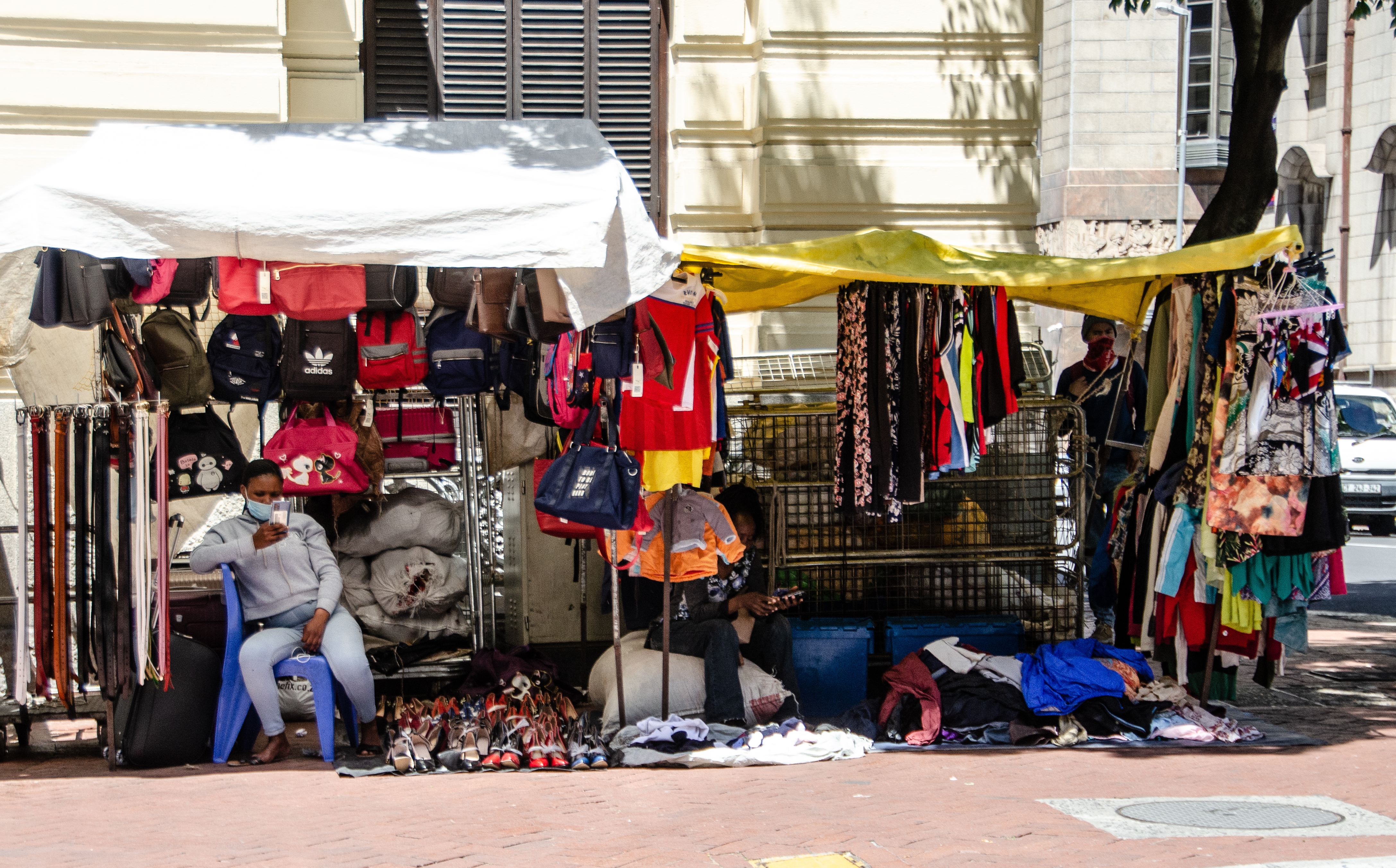COVID-19
COVID-19 impact on women informal cross border traders

‘Women informal cross border traders’ (WICBTs) play a vital role in sustaining Africa’s economy. Estimates suggest that between 50% to 60% of total intra-African trade is informal, and in most regions in Africa, including Southern Africa, women constitute around 70% of informal cross border traders (ICBTs). WICBTs do not only support their families and communities, they also provide an important contribution to the domestic and regional economies of their countries. This is measured both by the volume of goods and services traded and by the amount of employment created, according to quantitative data from censuses, and national household/employment surveys.
However, ICBTs remain vulnerable members of society and their businesses are inadequately protected by the law. This was never more apparent than during the COVID-19 pandemic, when informal cross border trade was mostly shut down for long periods of time. Some informal trade continued through informal routes, online platforms and other means. However, the loss of income was both detrimental to the economy and it severely affected the human rights of women traders and their dependents. This was seen throughout the continent but the focus in this piece will be on Southern Africa.
Informal cross border trade is particularly important for fragile economies, such as Zimbabwe’s, that rely on neighbouring countries for bigger markets and greater, cheaper access to products. Mary Malunga, the Gender and Social Inclusion Officer at the Southern Africa Cross Border Traders’ Association, interviewed a Zimbabwean WICBT who produces arts and handicrafts to sell to the tourist market in Cape Town. Like so many WICBTs, she is the sole breadwinner of her family. The trader continued to make her products during the lockdown in an attempt to keep her business afloat, but because her wares, as well as the price for them, were aimed at tourists, she was not able to sell them in Zimbabwe. The lack of income meant that she could not financially provide for her family.
The Southern Africa Trust wrote a series of reports on the impact of the COVID-19 pandemic on informal cross border traders in Southern Africa, and conducted studies in Zambia, Zimbabwe, Malawi and Eswatini. They found that during the pandemic, many informal traders not only lost their income and depleted their business capital, they were also not covered by national social security schemes. This is because they were not formally employed and, therefore, did not technically lose their jobs. The study in Eswatini also found that even when borders reopened, customs administrative procedures and immigration requirements were costly and constantly changing because of COVID-19 travel measures. About 93% of traders in Eswatini complained that duties were now higher than the amount of money they spent on buying stock. This forces even more individuals to use informal routes to cross the border, which exposes them to violence, bribes and fines, confiscation of their goods, harassment, and sexual abuse by border authorities and middlemen.
The ripple effects of ICBTs losing their income have been devastating in Africa. According to Malunga, there has been a steep rise in child marriages and teenage pregnancies in Malawi, since many children have been unable to go back to school. Similar statistics have been recorded in Zimbabwe, as well as an increase in girls engaging in transactional sex. Teenage pregnancies are also at an all time high in South Africa with children as young as 10 falling pregnant. Confining women and children to their homes has unfortunately meant being trapped with abusers, and reports of gender-based violence have skyrocketed across Africa since the start of the pandemic. The widening gender equality gap and resulting violence against women and girls is an unprecedented and disturbing consequence of the COVID-19 pandemic.
Informal trade has been recognized as an important contributor to economies by international organisations such as the International Labour Organisation, as well as by regional treaties like the African Continental Free Trade Area, and even sub-regional bodies like the Southern African Development Community. Unfortunately, national governments often fail to create policies and practices to protect informal workers. One could argue that this is because it is in the government’s best interest to ensure that all traders have registered businesses in order to collect taxes from them. However, there is little incentive for small-scale traders to incur extra paperwork, fees and travel costs to register their businesses, when they already have little time and money. Furthermore, considering how vast the informal economy is, it is unlikely that national governments would be able to provide any tangible benefit for informal traders who decide to register their business, and in the case of ICBTs, this would require coordination between governments to decide what these benefits would be. Informal trade will therefore continue to exist for the foreseeable future and national governments should create policies to support this fact, considering how the informal economy has contributed to reducing poverty, gender inequality as well as child pregnancies and gender-based violence.
We need interventions that recognise the importance of the informal economy and are aimed at protecting the women who constitute the majority of ICBTs. The lack of access to social security, financial relief and fair border practices are a symptom of the wider problem that governments and regional bodies have failed to fully consider vulnerable people such as women, the youth and informal workers, amongst others, when implementing lockdown measures. The COVID-19 pandemic has been a costly lesson that laws, policies and protective measures should always be viewed through the lens of the most vulnerable members of society.
Lauren Jimmy is a fundraiser in Stellenbosch University's Development and Alumni Relations Department. She holds a master's degree in International Trade Law and wrote her thesis on African Regional Trade systems.
